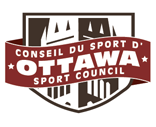On October 9, 2020 World Rugby released new guidelines that bar transgender women from playing rugby internationally. According to an article in the New York Times, World Rugby has stated that in a collision sport where that least one injury typically occurs per match, “safety and fairness cannot presently be assured for women competing against trans women in contact rugby.”
Many Rugby players and organizations across the world have spoken out against World Rugby’s new policy which goes against the sport’s usual reputation of inclusiveness and fair play for all. “Rugby Canada believes that all individuals deserve respectful and inclusive environments for participation that value the individuals’ gender identity and gender expression,” said Rugby Canada Board Chair Tim Powers in a statement in September. “We want to ensure that all participants have access to programming and facilities in which they feel comfortable and safe, and will continue to take all the necessary steps to do so.”
Canadian Women and Sport and the Canadian Centre for Ethics in Sport (CCES) sent a joint letter to World Rugby CEO Brett Gosper on November 27, outlining their concerns. “The ban violates the human rights of transgender and gender diverse women, forcing them out of sport and denying them the benefits it brings,” the letter states. “The discriminatory ban perpetuates the harmful and marginalizing practice of gender policing in women’s sport.”
The letter also highlights the support of 84 academics from across the globe, who have stated that there is no peer reviewed scientific evidence to justify a ban which will undoubtedly be harmful to transgender people. American LGBTQIS+ advocacy group Athlete Ally and Canadian LGBTQIS+ advocacy group Egale Canada have also voiced significant concerns about the ban. “World Rugby’s ban is rooted in cherry-picked data from a body of evidence that has been widely contested,” Executive Director of Athlete Ally, Hudson Taylor said. “Their decision to bar trans women from competing shows a lack of understanding about the complexities of performance, a lack of compassion for the rights and experiences of trans athletes, and perpetuates sexist ideas about female athleticism and potential for excellence.”
There are many organizations across the world that support LGBTQIS+ representation in sport. The You Can Play Project works to ensure the safety and inclusion for all who participate in sport including LGBTQIS+ athletes, coaches and fans. This organization offers resources about LGBTQIS+ inclusion terminology, pronoun usage, tips to create an inclusive locker room, as well as in person or virtual training sessions for teams, coaching organizations, club administration or corporations. Rugby Ontario and the Eastern Ontario Rugby Union continue to operate under the Rugby Canada/Rugby Ontario’s Trans Inclusion Policy. Ottawa is set to host the Bingham Cup in 2022, which is an international gay rugby union tournament which promotes inclusivity, equality and competition. This tournament will be held under the Trans Inclusion Policy, led by Rugby Canada and will welcome over 70 rugby teams from five continents to Ottawa come 2022. Jean-François Laberge, President of the Bingham Cup Ottawa organizing committee says that part of their winning bid to host the tournament in Ottawa was the organizing and hosting of an international conference to address the legal and social challenges faced by trans athletes. Laberge believes that World Rugby’s new policy may jeopardize achievements made in the LGBTQIS+ rugby community. “What we see now, it’s more than disappointing – it’s unacceptable,” he said.
The Ottawa Sport Council looks forward to supporting the Bingham Cup in 2022 and LGBTQIS+ athletes in all sports.

